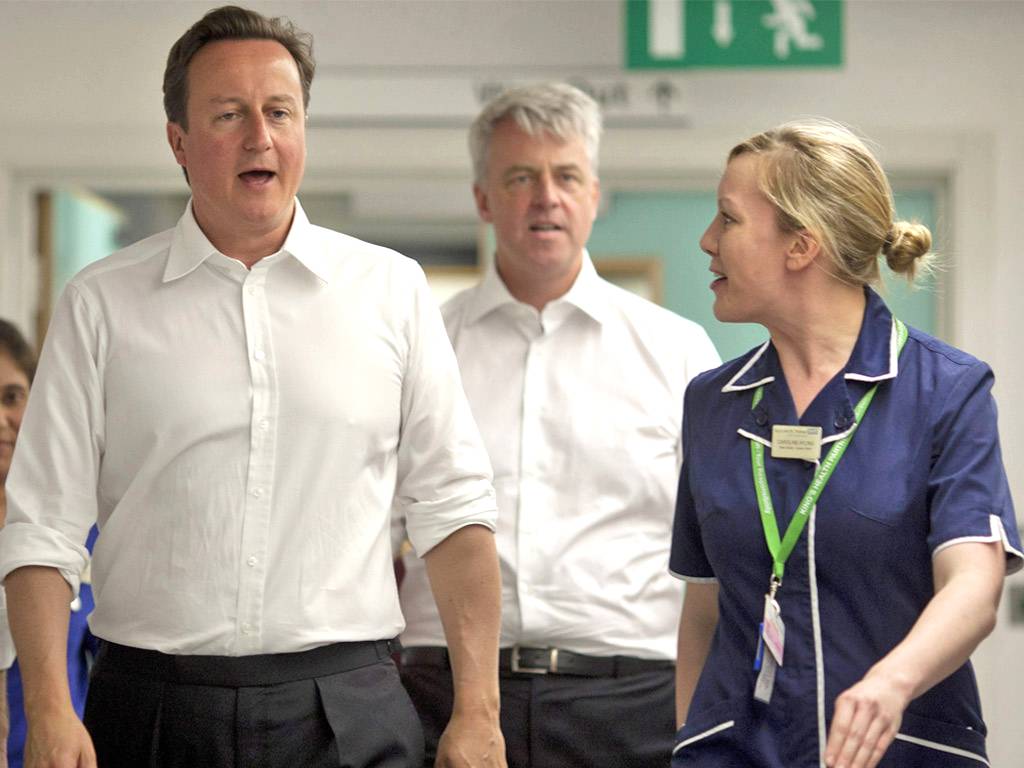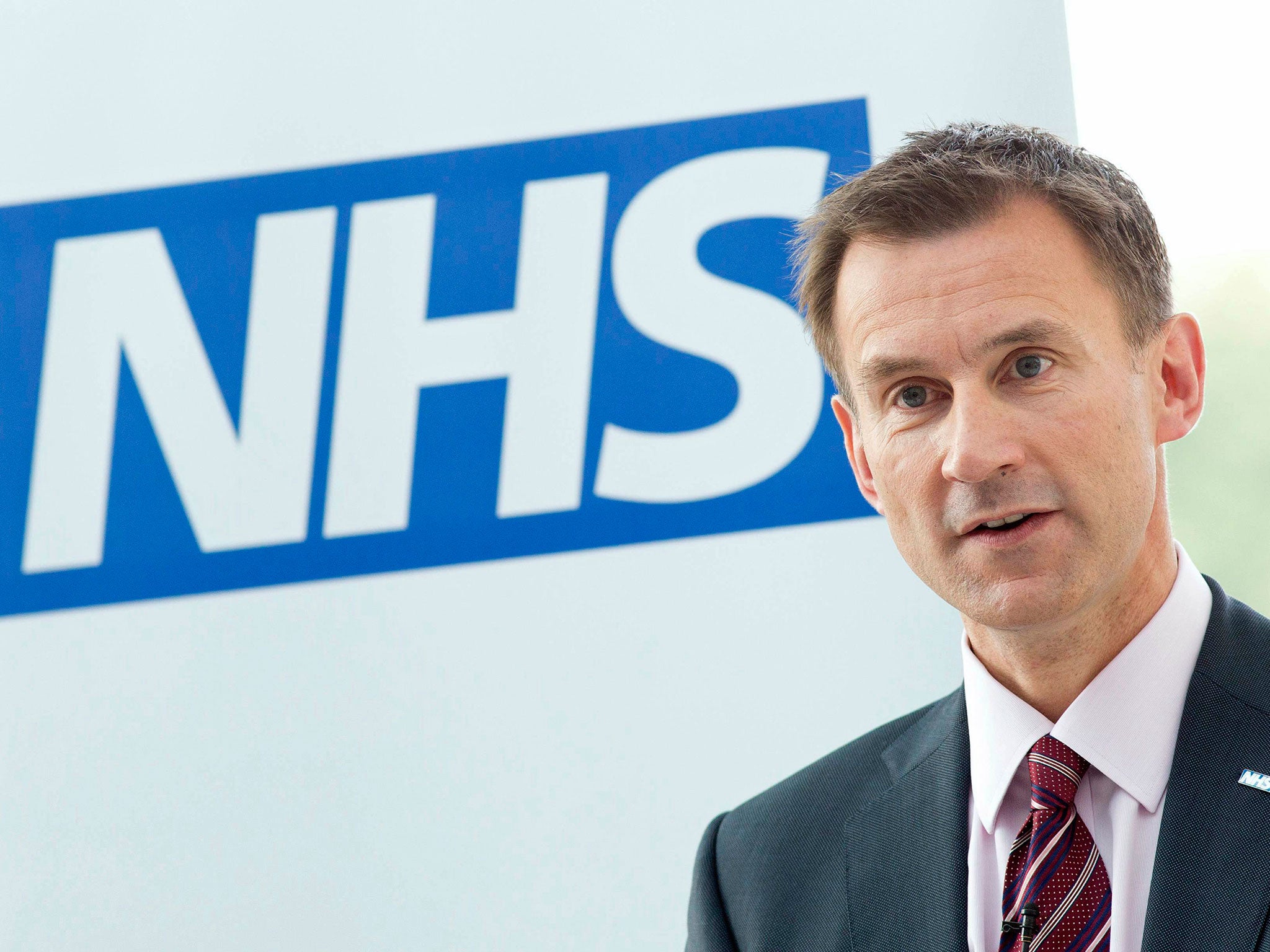Seven-day NHS plan rolled out by David Cameron in Prime Minister's first major speech, but will it work? There are seven major obstacles
With an £8 billion annual black hole and the NHS already suffering major staff shortages, experts are warning over the feasibility of seven-day GP access

Your support helps us to tell the story
From reproductive rights to climate change to Big Tech, The Independent is on the ground when the story is developing. Whether it's investigating the financials of Elon Musk's pro-Trump PAC or producing our latest documentary, 'The A Word', which shines a light on the American women fighting for reproductive rights, we know how important it is to parse out the facts from the messaging.
At such a critical moment in US history, we need reporters on the ground. Your donation allows us to keep sending journalists to speak to both sides of the story.
The Independent is trusted by Americans across the entire political spectrum. And unlike many other quality news outlets, we choose not to lock Americans out of our reporting and analysis with paywalls. We believe quality journalism should be available to everyone, paid for by those who can afford it.
Your support makes all the difference.Seven-day GP access has jumped up the agenda since a large-scale NHS review in 2012 found that patients are 16 per cent more likely to die if they are admitted on a Sunday than a Wednesday and 11 per cent more likely to die if they are admitted on a Saturday.
This is not just a problem confined to the UK - the findings were backed up by an unprecedented international study last summer, which found that patients are up to 17 per cent more likely to die if they are admitted at the weekend.
In a sign of how serious the new majority Conservative government is treating this anomaly, David Cameron has decided to use his first major speech since the election to expand on his manifesto pledge to deliver a “truly 7-day NHS”.
His Health Secretary Jeremy Hunt signalled how serious the deficiency of weekend healthcare is to the UK – telling the Today programme that around 3,000 people are dying every year because they do not receive sufficient treatment on Saturdays and Sundays.

There are a number of factors that may explain why so many more patients die at the weekend –fewer staff or poorer access to diagnostic tests, while others suggest that people are put-off from seeking treatment until the weekend or people who go to hospital at weekends are more ill to start with – if they were less ill, they would have had their admissions postponed until a week day.
But the very fact there is no agreement over why there is a sharp decline in performance over the weekend means there are serious questions over whether a seven-day NHS will work. Here are seven obstacles standing in the way of the seven-day plan from succeeding.
1. The impact of 7-day GP access on nursing
Nurses fear they will lose out if the Government pours funds into delivering its seven-day NHS. Dr Peter Carter, general secretary of the Royal College of Nursing, told the Independent that any “attacks on unsocial hours or weekend working payments” would be a “red line” for nurses.
The last thing the beleaguered NHS needs is strike action from nurses – the heartbeat of any health service. Aggravating this group of the workforce will risk undermining the “high quality health service when you need it most” pledge the Tories made in their manifesto.
2. Weekend working could undermine weekday care
The British Medical Association, the union that represents GPs, has warned that doctors and nurses working during the weekend will undermine services during the week, even if workforce is expanded. Working longer hours at more unsociable times will have an impact on morale and performance, the BMA fears.
3. Staff shortages
One in ten GP partner positions is vacant at the moment; a fifth of practices are waiting a year or more to fill a vacancy and a third of GPs are planning to retire in the next five years. With even more staff required if the Government is to succeed in implementing seven-day care – an extra 5,000 under Tory plans – where will the staff come from?
There is a real worry over how realistic the Tories’ plans are – Mr Hunt wants to see 50 per cent of medical graduates going into General Practice. But last year, 30 per cent of those places went unfilled.
4. Irregular hours may also deter potential future GPs
Many GPs choose the profession for family reasons, one expert explained. A regular five-day week is attractive for raising a family – will this deter more from pursuing a career as a GP?
“People just don’t want to become GPs” if they have to work Saturdays and Sundays, one doctor told the Today programme this morning.
5. Cost of funding vacant shifts
With hospitals lacking staff numbers and reluctance of full-time doctors to work unpopular shifts over the busy Christmas holiday period, hospitals found themselves footing bills up to £3,200 per shift to hire locum doctors last winter. The average fee charged by agency staff is £1,760 per day, according to Margaret Hodge, who chaired the House of Commons public accounts select committee.
As mentioned above, the NHS already suffers from staff shortages – opening for even longer hours will place a heavier burden on NHS budgets that are already facing an £8 billion black hole a year, according to NHS England’s chief executive Simon Stevens.
6. The pull of agency work and private sector
No wonder the NHS is suffering from staff shortages, considering the pay at stake working for agencies and the private sector. The exodus has already increased the cost of hiring agency staff to £2.6 billion a year. And the cost of training an emergency consultant is £400,000. Asking GPs to work at weekends is not going to encourage them to stay in the public sector.
7. Failure of pilot seven-day schemes signals problems ahead
Finally, the evidence from clinical commissioning groups (CCGs) is not too encouraging.
One of the CCGs that piloted seven-day GP access failed to reduce pressure on local A&E services and other pilots are considering cancelling theirs, the GP magazine Pulse reported earlier this month.
The Canterbury and Coastal CCG opened on Saturdays between 9am to 1pm for six months last year but did not cut the four-hour waiting time target of the nearby A&Es. If the Prime Minister is so keen to pursue an evidence-based approach to healthcare, what are the prospects for seven-day GPs if early examples indicate they will fail?
Join our commenting forum
Join thought-provoking conversations, follow other Independent readers and see their replies
Comments